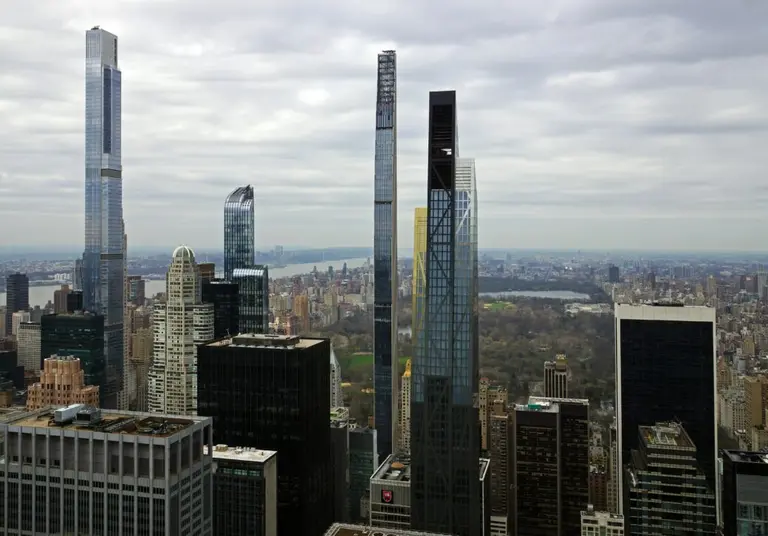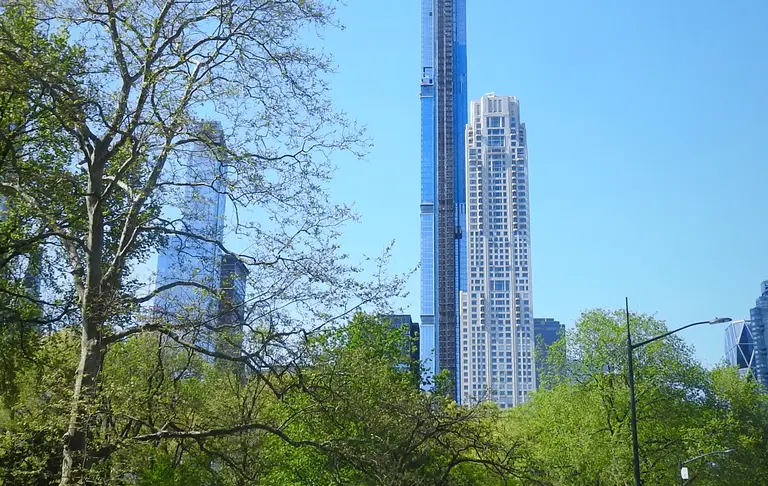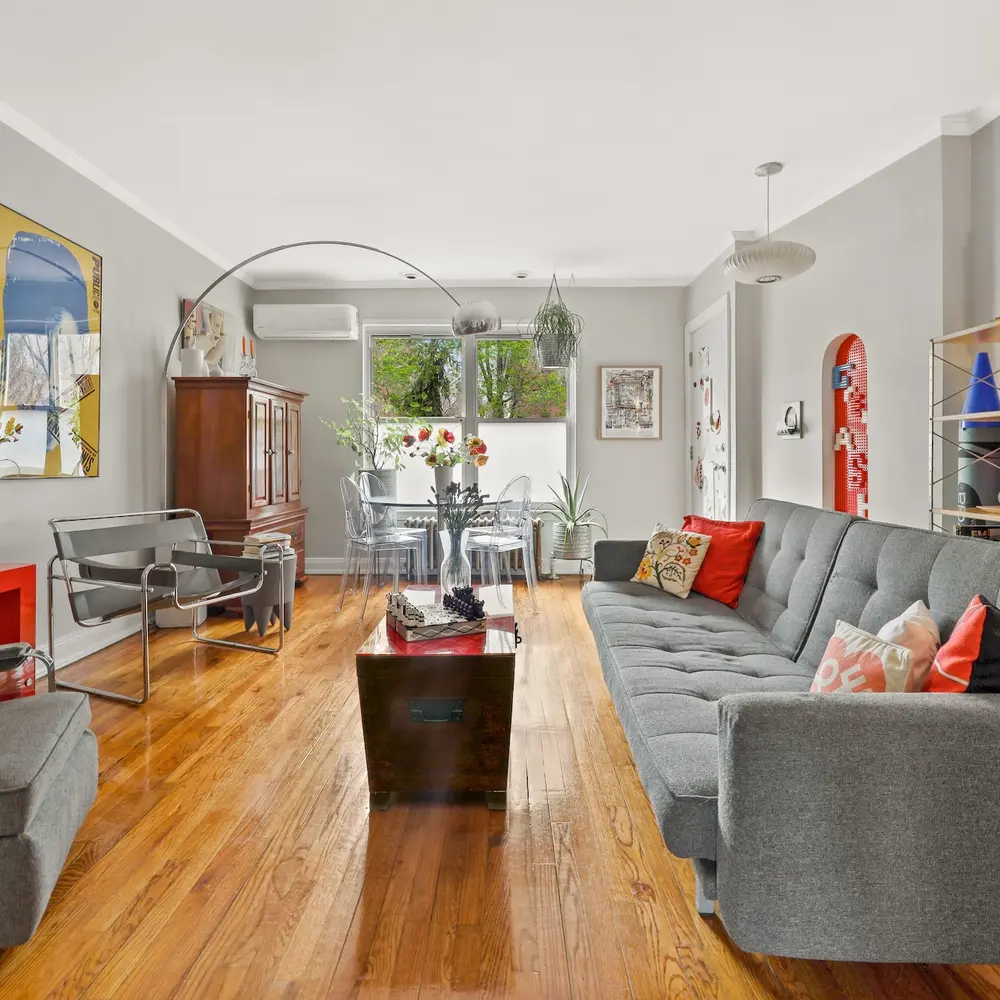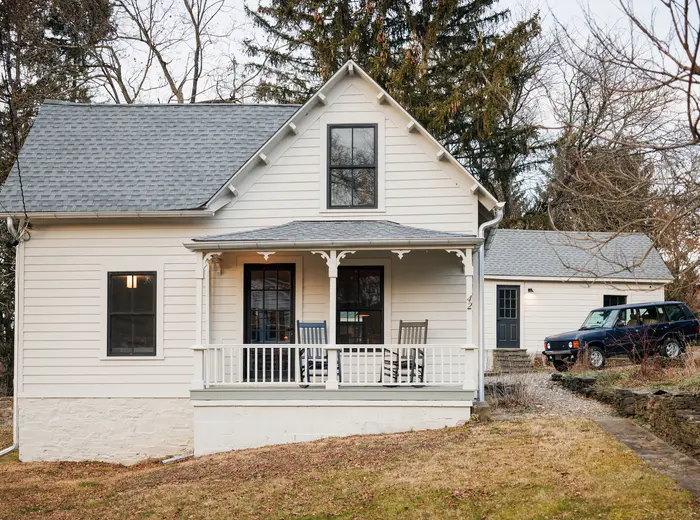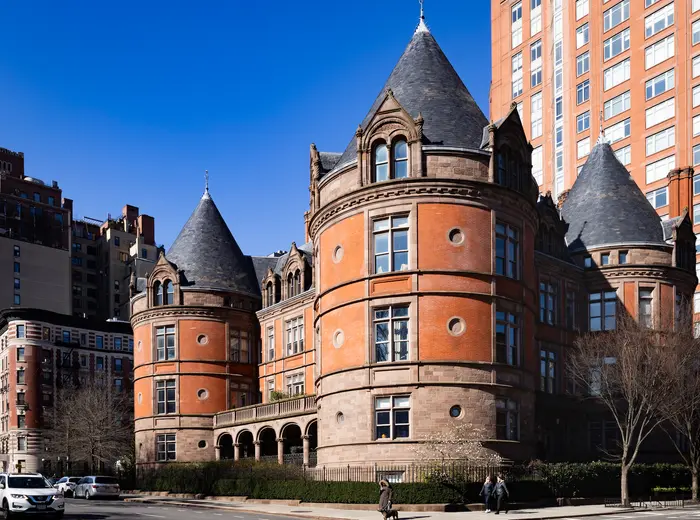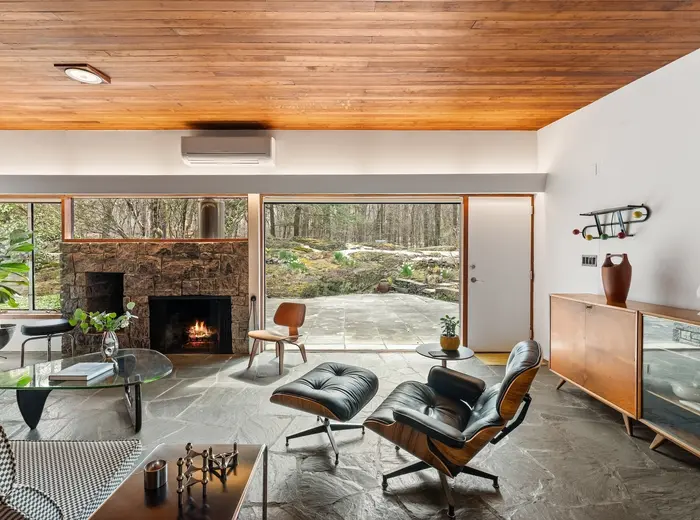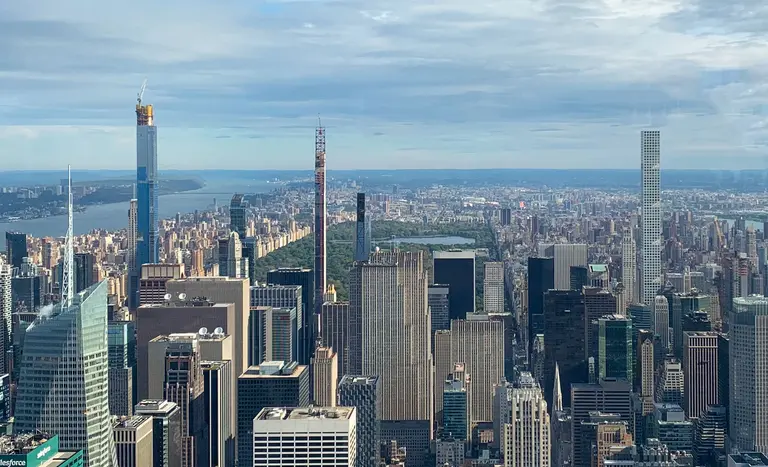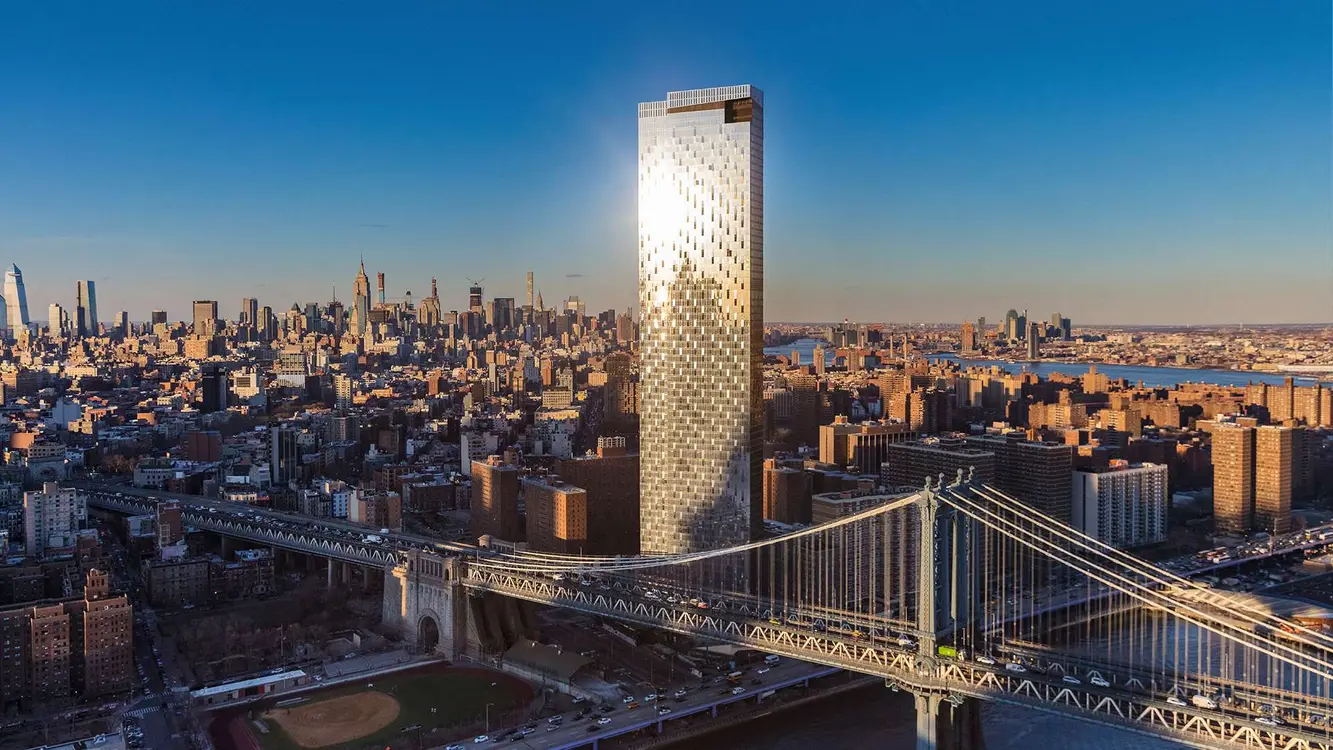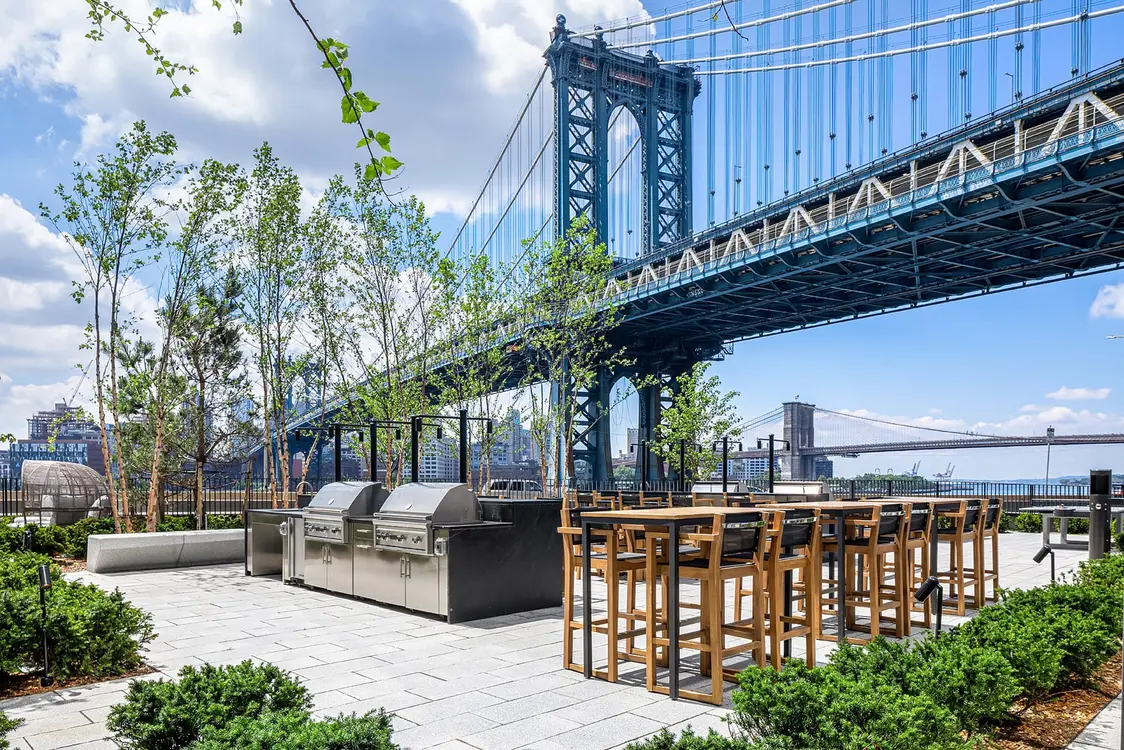Find out how much a pied-à-terre tax would affect the value of NYC’s most expensive homes
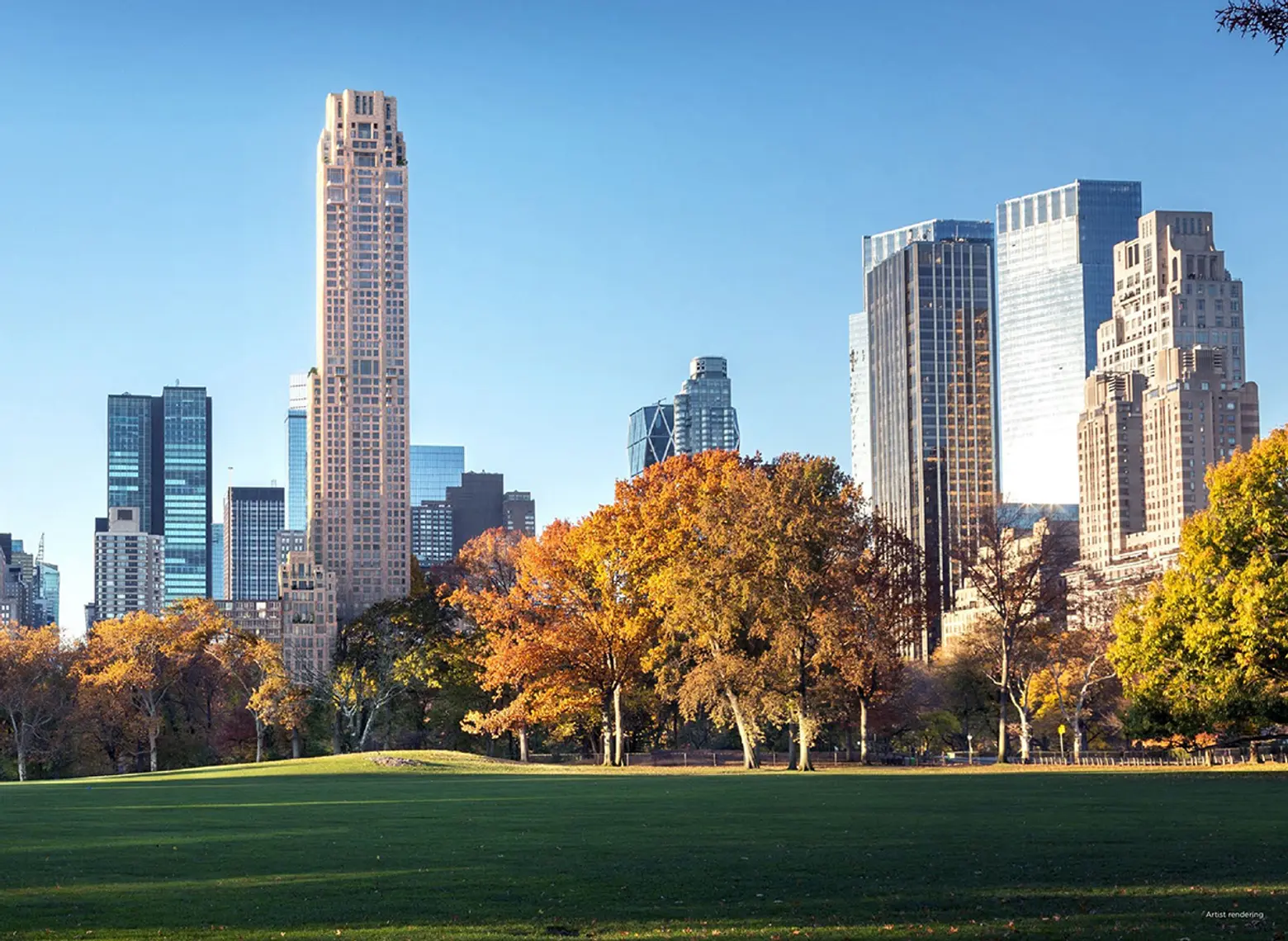
220 Central Park South. Image via Vornado Realty Trust and Robert A.M. Stern Architects.
Calls for a so-called pied-à-terre tax have increased since hedge fund manager Ken Griffin closed on a penthouse at 220 Central Park South for over $239 million in January, for a residence that the billionaire will be using as “a place to stay when he’s in town.” And State Budget Director Robert Mujica stated recently that a pied-à-terre tax could be combined with other revenue solutions to help fund the Metropolitan Transportation Authority’s $40 billion in capital needs. Owners of some of the city’s highest-priced real estate, however, could face a dramatic dip in their property values if the tax plan is enacted, the Wall Street Journal reports, after an analysis that showed how the heftiest tax would be levied on a small number of houses, co-ops, and condos with market values of $25 million or more. The new tax could potentially slash the value of this handful of pricy properties by almost half.
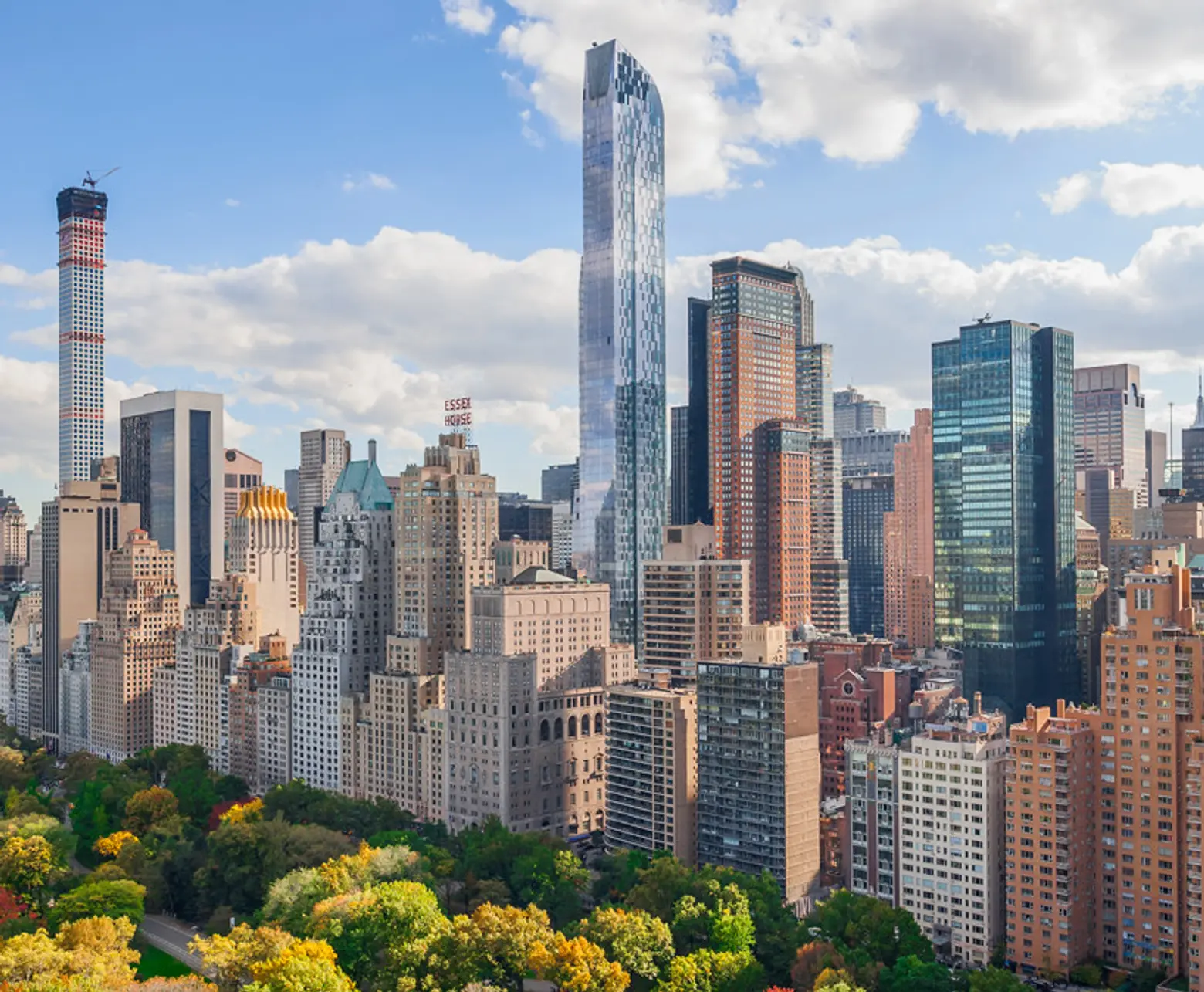
One57 . Image © Wade Zimmerman courtesy of Agence Christian de Portzamparc (ACDP)
City Council Members Mark Levine and Margaret Chin recently announced support for a bill that was first drafted by Sen. Brad Hoylman five years ago, which would place a yearly surcharge of 0.5 percent to 4 percent on secondary residences, also known as pieds-à-terre, worth more than $5 million. The tax would be part of the state budget for the fiscal year starting April 1.
The impact of the tax was calculated using a standard financial measure known as the net present value, added up the current cost of a stream of 30 years of future tax payments for each property. The tax hit homeowners would face under the new bill for the next 30 years could trim the value of the average mansion priced at $25 million or more by about 46 percent; the value of homes selling for between $20 million and $25 million would fall by 26 percent.

Image via One57.
The tax burden on properties valued at $25 million comes to an average of $846,000 for each, with the highest being about $8.97 million a year for Ken Griffin’s pad. Michael Dell’s 90th-floor penthouse at One57 would be asked to fork over more than $3.3 million a year based on the $100.5 million purchase. On that same building’s 75th floor, a unit purchased for $90 million by investor William Ackman will face a bill of more than $3 million based on the purchase price.
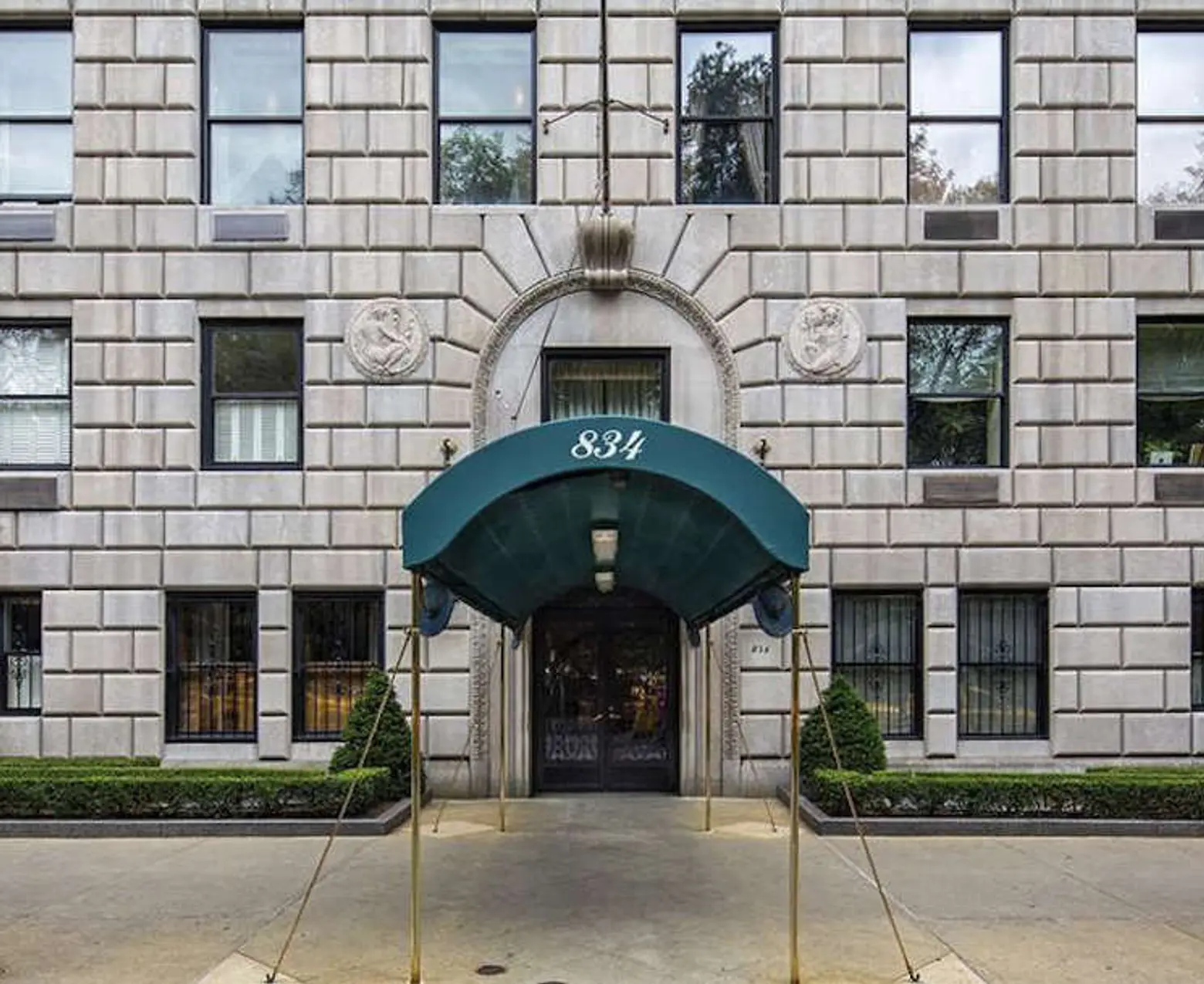

19 East 64th Street via Wikimedia
A $77.5 million duplex unit at 834 Fifth Avenue owned by Len Blavatnik could face a tax that tops $2.4 million. The billionaire owns two pricey-co-ops on the avenue; the one at 834 Fifth was the most expensive co-op sale in Manhattan in 2015. Blavatnik also broke the city’s record for the most expensive townhouse after paying $90 million for an Upper East Side mansion at 19 East 64th Street last year.
The tax plan would also include second and third homes of New York City residents and any home listed as being under corporate ownership (even if the owners use it as a primary residence). The Journal’s analysis projects that the tax would raise a total of $471 million from corporate residences, half of which would come from about 280 properties worth $25 million or more. 923 property owners with apartments valued below $6 million would pay a total of $2.1 million annually.
Players with a stake in ultra high-stakes residential real estate–i.e. the real estate industry and a handful of owners–have been lobbying against the bill; there has been a proposal to drop the annual tax in favor of a one-time transfer tax.
One property owner who is facing down the prospect of having to pay a multi-million dollar annual tax told the WSJ he feared destruction of the upper end of the real estate market and damage to the city’s reputation as a world-class city–and eventually a real estate recession: “The tax is a disaster. If you actually put the tax in place, you would massively reduce the value of real estate.”
[Via WSJ]
RELATED:
